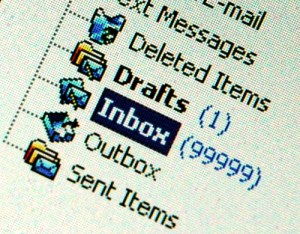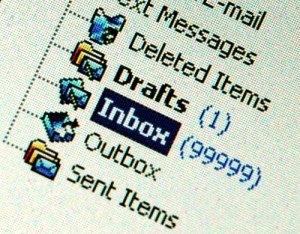 When’s the last time you felt completely unproductive at work? Not a day where you were busy, but rather a day you couldn’t even get to item number one on your HR and payroll to-do list. Did that day feature back-to-back meetings, running from one task to another? Compounding your lack of productivity is that in-between meetings you do not feel like you have time to do anything more complicated than firing off some responses to your emails (those you didn’t check/answer during your meetings).
When’s the last time you felt completely unproductive at work? Not a day where you were busy, but rather a day you couldn’t even get to item number one on your HR and payroll to-do list. Did that day feature back-to-back meetings, running from one task to another? Compounding your lack of productivity is that in-between meetings you do not feel like you have time to do anything more complicated than firing off some responses to your emails (those you didn’t check/answer during your meetings).
The problem with days like the ones just described is that you never get to take on your important HR or payroll tasks… and your to-do list grows. More and more to-do’s that probably should have been done yesterday or even last week. Yet, they keep getting pushed off. But why?
You guessed it…email. Those, oh so important requests that you feel immediately compelled to complete. Were those emails so important that you had to respond within an hour? Did your immediate response contribute to your company’s bottom line? That overwhelming desire to keep your inbox at zero has now derailed the fulfillment of your most important tasks.
Working in a virtual environment, I’ve found it’s even easier to become a slave to your inbox as email is our primary means of communication as well as validation that I am, indeed, “on the job.” Over time, I have discovered that my inbox and daily metrics go hand in hand; the lower my unread messages, the lower my productivity is as reflected by our analytics. To maximize my efficiency, I’ve made a conscious effort to dedicate blocks of time to certain tasks. One of those tasks to set aside time to address and time to ignore is email. Frequently switching over to my inbox derails my drive and disrupts my concentration.
Our brain sends bursts of dopamine when we see those email popups indicating a new message or your phone buzzes indicating a mysterious and unread message, making it incredibly hard to ignore and changing the course of your day. My solution: turn it off. Let’s not get crazy, I’m not saying turn your phone off. But rather disable email alerts and notifications (on your phone and computer), flip your phone over, turn it on silent or even go as far as uninstall your work email app. I most often use the uninstall method when I’ll be out of the office for an extended time. Removing the temptation is the first and biggest step to removing the email shackles.
Once the constant need to check and respond to your emails has been removed, then you can focus on your key priorities. At the end of the day, I gauge by reviewing if I helped Willory’s bottom line, did I assist a colleague with a particular opening, or have I spent my day as a taskmaster, focused on checking important items off my list.
Email has been one of the most important inventions of our time, allowing virtual work environments like Willory to exist, but it’s also one of our biggest distractions. By turning it off for a short amount of time, you’re able to achieve higher levels of productivity.
Recently Posted
Tag Cloud
Office

OH 44210
Connected:
Quick Links
For Employers
For Candidates
Your Source For HR & Payroll News
- Privacy Policy
- Terms & Conditions
- Site Map



